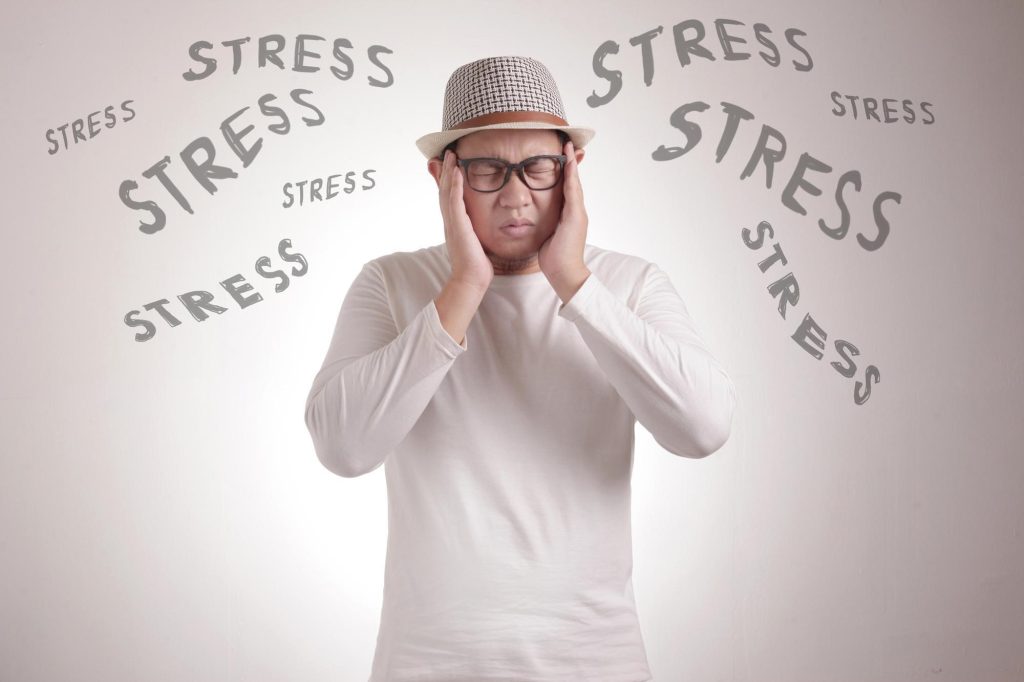WHY AM I RE-EXPERIENCING THE TRAUMA? IS IT POST-TRAUMATIC STRESS DISORDER?

Post-traumatic stress disorder (PTSD), previously known as battle fatigue syndrome, is a severe mental health condition that is typically triggered by frightening events or physical/psychological trauma.
PTSD is a lifelong effect resulting from exposure to traumatic events, which leads to feelings of helplessness, intense fear and anxiety.
WHAT CAUSES POST-TRAUMATIC STRESS?
There are various examples of events that can cause PTSD, such as physical, mental, or sexual assault, the unexpected death of a loved one, an accidental event, war, or some natural disaster. The trauma can lead to a range of emotional and physical responses, affecting how individuals process their experiences. While anyone can develop PTSD, certain factors may increase vulnerability:
- Increased severity of abuse
- Prolonged exposure to traumatic events
- Personal or family history of mental illness
- Lack of social support
IS PTSD PREVENTABLE?
It is estimated that more than 70% of people are exposed to trauma at least once in their lives, and approximately 10% of individuals develop PTSD after experiencing a Traumatic event. The analysis concludes that the psychological response and emotional reactions to trauma are determined both by the severity of the event and the person's characteristics, such as resilience and emotional intelligence.
Individuals with PTSD have high comorbidities with other psychiatric diseases, including depressive disorder, anxiety, panic, and substance use disorder, making it an illness that requires urgent attention.
AM I EXPERIENCING SYMPTOMS OF PTSD?
The symptoms of PTSD can vary among individuals, but they generally fall into four main categories:
1. Re-experiencing trauma: including flashbacks, nightmares, and intrusive thoughts about the trauma. People feel as if they are being transported back in time and experiencing the traumatic event again with the exact intensity, overwhelmed by the same fear and anxiety they experienced at that moment.
2. Avoidance: Those with PTSD often go to great lengths to avoid reminders of the trauma. It involves steering clear of specific places, people, or activities that trigger event memories. Avoidance leads to isolating oneself from friends and family and losing interest in activities that once brought joy.
3. Negative Changes in Mood: PTSD can result in persistent negative thoughts, difficulty managing emotions, intense anger/sadness, hopelessness, and a distorted sense of shame and blame regarding the event.
4. Hyper-vigilance: It constitutes an exaggerated startle response, irritability, and difficulty sleeping. The body remains in a heightened state of alertness, which can lead to fatigue and difficulty concentrating.
SEEKING HELP/TREATMENT:
Treatment of PTSD involves the reduction of symptoms to improve the daily life functioning of a person. A mental health expert who has sufficient experience in trauma-related cases can provide a diagnosis and treatment plan for PTSD. Evidence-based psychotherapies are the first-line treatment, with cognitive behavioral therapies, such as prolonged exposure and cognitive processing therapy, having the highest quality of evidence.
For those who may feel hesitant about traditional face-to-face therapy, it's important to know that internet-based cognitive and behavioral therapy (I‐C/BT) is an effective and acceptable option for managing anxiety, stress and depression. Research conducted on 808 participants concluded that online cognitive behavioral therapy has similar efficacy as face-to-face talk therapy. This means that you can receive the help you need in a way that feels comfortable and convenient for you.
Opening up about your mental health struggles with people who have similar experiences provides comfort and reduces feelings of isolation. Support groups offer a safe space to share experiences and coping strategies. Engaging in self-care activities can significantly aid recovery. Exercise, mindfulness, and a healthy diet can improve mood and well-being.
A WORD FROM MENTAL NURTURING:
Post-Traumatic Stress Disorder (PTSD) is a complicated mental health condition that can significantly impact a person's daily life, relationships, and overall well-being. Often misunderstood, PTSD is not merely a response to trauma but a condition that can develop long after the traumatic event has occurred. Due to the rising prevalence, comorbidities, and severe symptoms, PTSD is recognized as a psychiatric disorder requiring urgent treatment.
Recovery from PTSD is a journey that varies for each individual. The presence of a supportive network and empathy can mitigate the impact of trauma. It's essential to be patient with yourself and to recognize that healing takes time. If you're feeling like you're re-experiencing a traumatic event, remember that help is available and recovery is absolutely within your reach. You're not alone in this journey. You can take control of your life by building self-awareness, seeking the professional support, and actively implementing effective self-care strategies.
REFERENCES:
1. Merians AN, Spiller T, Harpaz-Rotem I, Krystal JH, Pietrzak RH. Post-traumatic Stress Disorder. Med Clin North Am. 2023 Jan;107(1):85-99. doi: 10.1016/j.mcna.2022.04.003. Epub 2022 Oct 28. PMID: 36402502.
2. Olff M, Hein I, Amstadter AB, Armour C, Skogbrott Birkeland M, Bui E, Cloitre M, Ehlers A, Ford JD, Greene T, Hansen M, Harnett NG, Kaminer D, Lewis C, Minelli A, Niles B, Nugent NR, Roberts N, Price M, Reffi AN, Seedat S, Seligowski AV, Vujanovic AA. The impact of trauma and how to intervene: a narrative review of psychotraumatology over the past 15 years. Eur J Psychotraumatol. 2025 Dec;16(1):2458406. doi: 10.1080/20008066.2025.2458406. Epub 2025 Feb 6. PMID: 39912534; PMCID: PMC11803766.
3. Thakur A, Choudhary D, Kumar B, Chaudhary A. A Review on Post-traumatic Stress Disorder (PTSD): Symptoms, Therapies and Recent Case Studies. Curr Mol Pharmacol. 2022;15(3):502-516. doi: 10.2174/1874467214666210525160944. PMID: 34036925.
4. Qi W, Gevonden M, Shalev A. Prevention of Post-Traumatic Stress Disorder After Trauma: Current Evidence and Future Directions. Curr Psychiatry Rep. 2016 Feb;18(2):20. doi: 10.1007/s11920-015-0655-0. PMID: 26800995; PMCID: PMC4723637.

Written by:
Dr.Saba Munir, MBBS
On December 23, 2024

